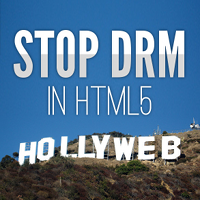Within less than a year, a wordpress core developer changed wordpress’s licensing statement again. This time it has been changed from GPL to GPL v2+. The Changeset was [17301]:
WordPress contains libraries only available under the GPL v2 or later. No one cares about the GPL v1 anymore. We are now specifically saying that WordPress is available under the GPL version 2 or (at your option) any later version. This was discussed with the entire core team.
Next to the changeset in the wordpress core package, the text of the of the wordpress.org licensing terms has been changed.
The change done by Mark Jaquith is promoted as “Clarification in Licensing Language”. He explains that in an associated blog post.
In that post he is talking about licensing problems that result from the fact that wordpress has been using GPL version restricted library code (as it is the case for the KSES library which terms have been technically violated) while the package was not version restricted.
The core team wants to solve the issue now by distributing worpdress under GPL v2 or later which is matching the libraries own version specification.
The debate about the GPL version came on topic in August 2010 when I made a change of the GPL version in Februrary more prominent. That time it was a change from GPL to GPL v2 done by Andrew Nacin which got reverted after my report by Mark Jaquith in the end.
The worpdress copyright and licensing terms were subject to change a few times in the past.
Read On: WordPress License Clarified – Weblogs Tool Collection (16 Jan 2011; by James Huff)
Follow Up: CiviCRM and WordPress (28 Jan 2011; by hakre)
Previous: Akismet Introduces GPL Version to WordPress
Next: b2/cafelog is GPL
Series: WordPress Licensing Issues





Hakre, I get the impression that you’re not happy with this change.
It seems to me that this is be best-of-all-worlds solution, no?
I put a detailed comment on the blog post which contain some of my thoughts, unfortunately it ended up in the moderation queue so this might take some time until it reaches the light of day.
I think the step to care about licensing issues is long overdue by the core team, so this is not entirely bad news. But the main point is to care right, just changing a line in the readme does not make much sense and as we’ve seen this in the past can introduce even more problems. I made some suggestions under which conditions GPL v2+ re-licensing should be possible in that comment. It’s not entirely news anyway.
I responded to your comment privately (and at length). Did you get my e-mail? If not, please provide me with your preferred e-mail address.
On the plus side, I’d note that they (as in the WP core devs, with two changesets today at the time of writing) are taking this a bit more seriously then they’ve been in the past weeks/months.
I didn’t see the two changesets you mentioned, but yes, it looks good to me that the license version has come to conclusion in the whole core team. I mean it’s important that at least the core team has one position to that.
GPL-version-wise, I think it’s quite okay to aim the GPL v2+ terms for the whole package, but switching to it should not violate the GPL e.g. by hiding the contributed codes original licensing specs (see #16269).
Specifying the terms by naming the GPL version is not re-licensing btw, it’s the free choice, the wordpress project has as a user of the GPL’ed code that did not specify a version. I refer a bit to your comment on wpdevel here. Permission was given by all original copyright holders that every user can choose the GPL terms’ version, so the project can choose as long as they don’t (attempt to) violate the terms.
I think it’s quite okay to aim the GPL v2+ terms for the whole package, but switching to it should not violate the GPL.